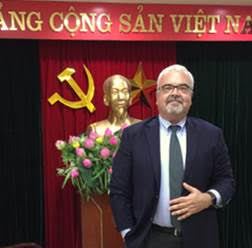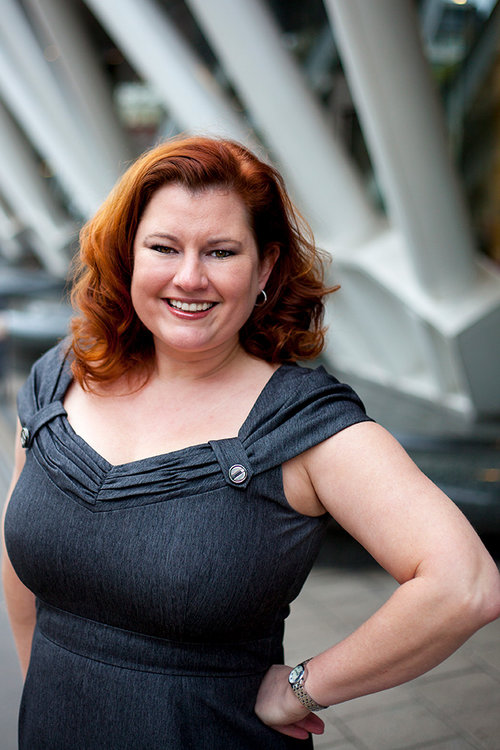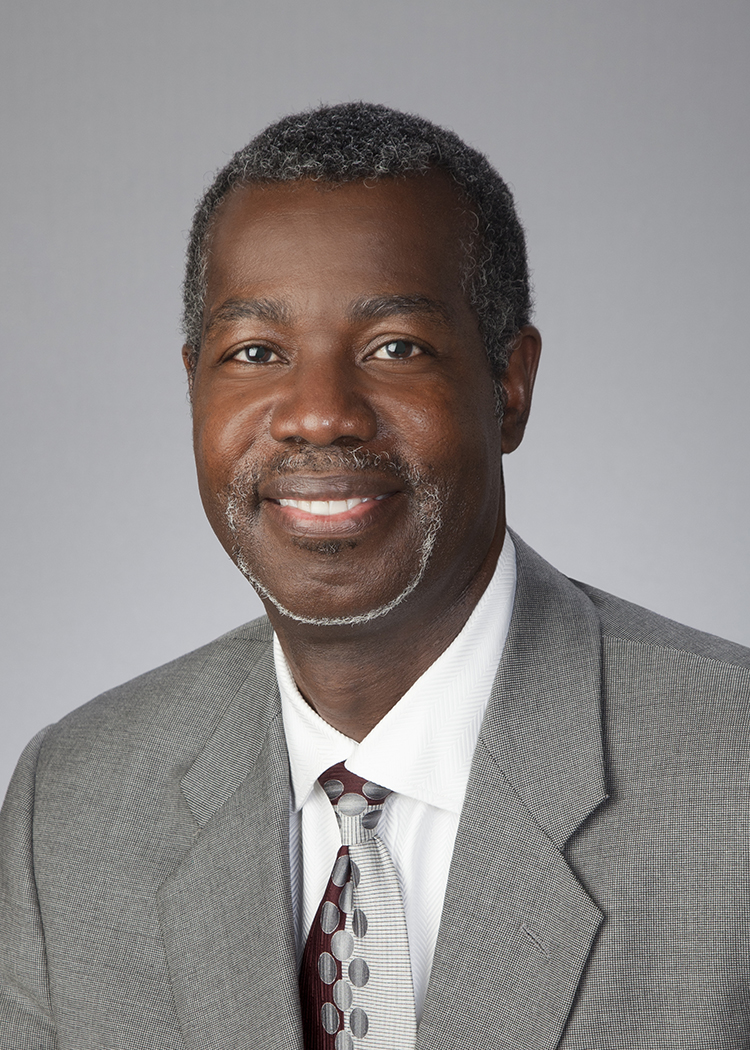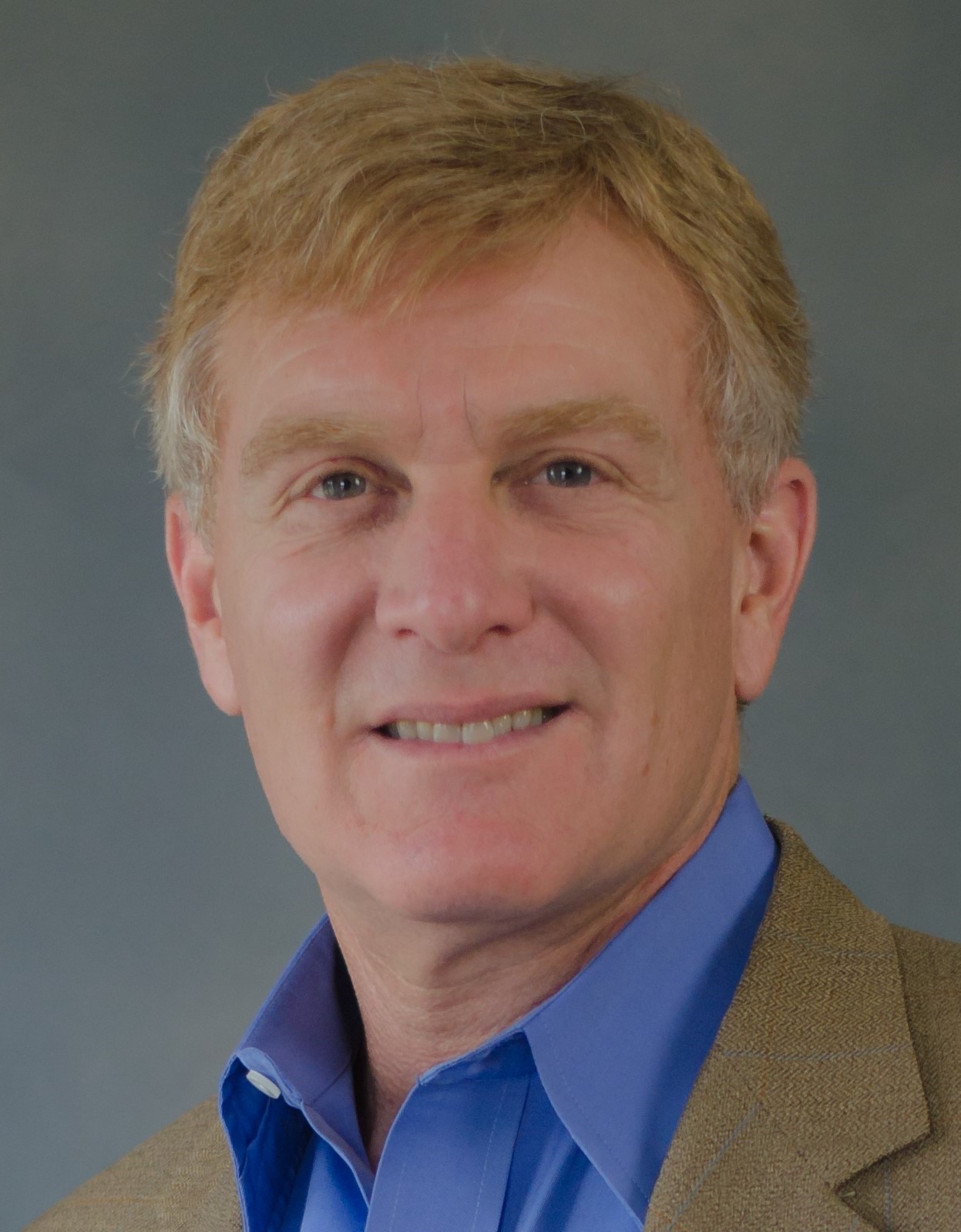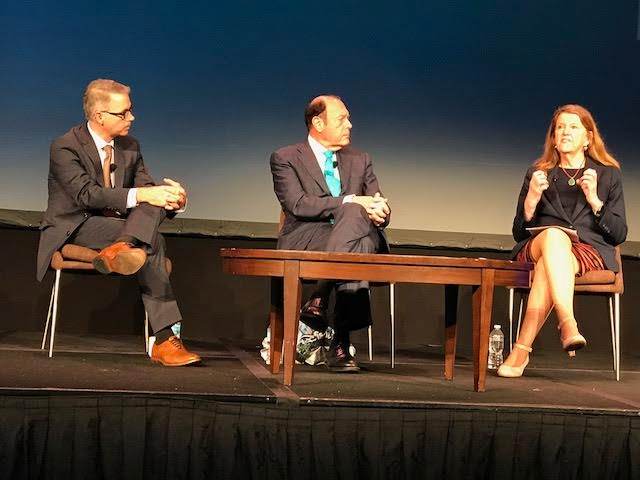Regulatory Challenger: LabCFTC and Daniel Gorfine
Jo Ann Barefoot
Some organizations are so interesting that we come back to them more than once. Among US regulatory agencies, the most fascinating may be the Commodity Futures Trading Commission. Last July we ran a podcast conversation with the Commission’s Chairman, Christopher Giancarlo, which goes into greater depth about the role of the CFTC and it also contains Chairman Giancarlo’s thought-provoking statement that the top priority facing every regulatory body is to convert the rule book from analog to digital design. The CFTC is at the forefront of regulatory innovation in part because its leader is so passionate about the importance of it.
In that spirit, they recruited the perfect person to lead the LabCFTC innovation project -- today’s guest, Daniel Gorfine. Luckily for us, the CFTC was able to attract Dan into government from the fintech sector – I first met him when he was at OnDeck – and he’s been bringing an innovator’s mindset and working models to this venerable government agency.
This episode has three very meaty topics, each of which could have been a whole show.
First, Dan talks about the vision and work of LabCFTC, sharing insights about how it’s organized that I know other regulators will find helpful. He talks about how they track and facilitate innovation in the financial markets, including a “primer” they issued on rules applying to cryptocurrency. He also explains how they explore new technology for use by the agency, itself -- they call that CFTC 2.0 -- as well as “Digital Reg,” an internal think tank for rapid learning and sharing of tech insight.
Second, Dan talks with me about an exciting initiative they’ve just launched, issuing the first-ever CFTC Science Prize Competition Act challenge. They discovered this law empowering agencies to run competitions to solve regulatory problems in science and technology, and they decided to crowdsource ideas on both the problems to tackle and the process to use. Public comments are due July 24. In our conversation, Dan throws out some of the ideas he and his colleagues have thought of -- maybe regulatory data visualization tools, or machine-learning for market surveillance, or machine-readable and machine-executable regulation -- but they want to hear from you. Our listeners are among the most thoughtful people anywhere on regulation innovation, so please comment. You could even become CFTC Innovator of the Year!
Our third topic is one that rarely surfaces in the innovation dialogue, and solely needs discussion: the legal and procedural obstacles to government agencies that want to embrace innovation. We could call the topic, government modernization.
Think about it. If you were a federal agency wanting to keep up with technology innovation, you would want to be able to do a few things. You would want to be able to try out new technologies, hands-on. If the innovation was something you might adopt for your own agency, you would want to test it before you had to commit to a major procurement budget and procedure. You would also want to be able to brainstorm with a wide range of people, learning from them, thinking through ideas with them.
All of this is stunted today by well-intentioned rules that were designed long ago -- for good reason -- to prevent inappropriate influence, backroom deals, and the like. Dan talks in particular about the Anti-Deficiency Act, which restricts procurement activities and prevents the CFTC from being able to try out new kinds of tools. Another issue is the procurement process itself. I met a few months ago with people from a different agency, showing them some innovative technology that could make their regulatory work easier, and one of them said, “If we decided today that we should adopt this, we would have it in seven years.”
I’ve talked with other agencies that cite the Federal Advisory Committee Act, with its restrictions on meetings, and the Administrative Procedure Act, which structures the rule-making process and, at some stages, limits interactive dialogue. Agencies have raised concerns about various “government in the sunshine” rules, which again make it difficult to talk informally. Some can’t readily attend a breakfast or lunch event. They have to ask about the value of the meal being served and if it’s more than, I think it’s $15, they can’t eat it, or they have to go through paperwork to pay for it. And of course, there are complex approval processes for participating in various kinds of forums.
More than any show we’ve done, this one puts you in the shoes of the regulatory agency and shows how their hands are tied by procedural prohibitions and requirements. I’d love to see someone do a study, maybe a graduate thesis, on how rules that were written in an older, slower era may now undermine the ability of regulators to keep up with exponential change in technology. We could use suggestions on updating them for the digital age. And remember, it’s an issue much broader than finance.
I’ve been in and around Washington for decades and can remember the bad old days before some of these rules were created -- indeed, I remember some of the bad old practices that led to them. Still, we don’t need to straightjacket our regulators. Other countries have a much more fluid discussion between agencies and industry, and also have the ability to try things. One model is the Bank of England’s Fintech Accelerator, which explores new technology for the bank itself. And Dan and I both participated in London last month in the amazing AML Tech Sprint run by the UK Financial Conduct Authority -- which is a stunning model of innovative regulatory process. Its leaders were my guests on the last podcast we posted (which my friend Peter Renton of LendAcademy and LendIt called the “most fascinating discussion he’s ever heard on the future of financial regulation” -- if you missed it, check it out).
Meanwhile, here’s some great news. Just a few days ago, Congressman Austin Scott (R-GA) introduced the CFTC Research and Development Modernization Act, H.R. 6121. Dan refers to it in our talk – it’s bipartisan legislation to address some of these hurdles at the CFTC. We’ll link to it in the show notes. The bill would permit the Commission to collaborate on projects with fintech developers. It would also allow it to receive “gifts” for R&D purposes, including software to try out, subject to common sense safeguards.
The bill echoes work by Congressman Patrick McHenry (R-NC), who has sought to facilitate innovation by all the financial regulatory agencies. And the US agencies, themselves, are all moving ahead, too. The CFPB’s Acting Director, Mick Mulvaney, plans to launch a regulatory sandbox. The FDIC held a tremendously impressive technology forum. Five US agencies attended the UK tech sprint.
Regulation innovation is coming, and no one is more thoughtful about it than Dan Gorfine.
More links
- Our Podcast with Christopher Woolard of the UK Financial Conduct Authority
- Our Podcast with Nick Cook, the FCA’s head of regtech
- FinRegLab, which is leading regulatory innovation in the US
- Link to transcription of this episode (Note that transcripts may sometimes contain errors and that transcript timing notations do not match the posted podcast)
More on Dan Gorfine
Daniel Gorfine is Chief Innovation Officer and Director, LabCFTC at the U.S. Commodity Futures Trading Commission. LabCFTC is dedicated to facilitating market-enhancing financial technology (FinTech) innovation, fair market competition, and proactive regulatory excellence and understanding of emerging technologies. Daniel is also an Adjunct Professor at the Georgetown University Law Center where he teaches a course on ‘FinTech Law & Policy.’ Daniel was most recently Vice President, External Affairs & Associate General Counsel at OnDeck, and previously served as director of financial markets policy and legal counsel at the Milken Institute think tank where he focused on technology-driven financial innovation, capital access, and financial market policy. Earlier in his career, Gorfine worked at the international law firm Covington & Burling LLP and served a clerkship with U.S. District Court Judge Catherine C. Blake in the District of Maryland. A graduate of Brown University (A.B.), Daniel holds a J.D. from George Washington University Law School and an M.A. from the Paul H. Nitze School for Advanced International Studies (SAIS) at Johns Hopkins University.
More for our listeners
We have many more great podcasts in the queue. We’ll talk with another community bank CEO, Mike Butler of Radius Bank. We’ll have two more episodes that we recorded this year at LendIt. One is a discussion of new research by LendUp and Experian, on credit reporting, and the other is with Greg Kidd, Founder of Global ID. We also recorded two episodes at last month’s Comply 2018 conference in New York, with two regtech firms -- Compliance.ai, which offers machine-readable regulatory compliance, and Alloy, which has high-tech solutions for meeting the Know-Your-Customer rules in AML.
Speaking of LendIt, I was a guest last week on Lend Academy podcast, and Peter Renton will be on our show soon as well, so watch for those.
I’m also excited we’ll have several leading members of Congress on the show in the coming weeks. So, stay tuned!
The summer conference slowdown is nearly upon us, but I hope to see you at upcoming speeches and events including:
American Bankers Association Regulatory Compliance Conference, June 26, Nashville, TN
Money 2020, October in Las Vegas. Among other things, I’ll be speaking on the Revolution Stage about the regulation revolution
Also, watch for upcoming information on my collaboration with Brett King on his new book on the future of finance -- we’ll have a show and events on that as well.
If you listen to Barefoot Innovation on iTunes, please leave a five-star rating on the show to help us build it. Also please remember to send in your “buck a show” to keep it going, and come to jsbarefoot.com for today’s show notes and to join our email list, so you’ll get the newest podcast, newsletter, and blog posts. As always, please follow me on Twitter and Facebook.
And tell me what you’re thinking about digitizing regulation. Let’s widen this dialogue to more people and more and more ideas!




















